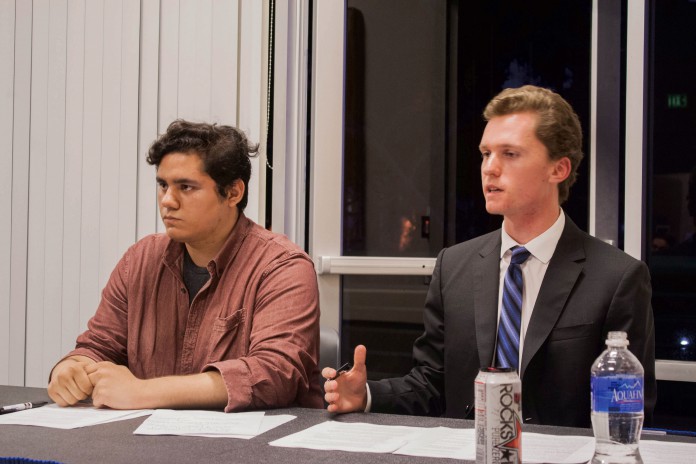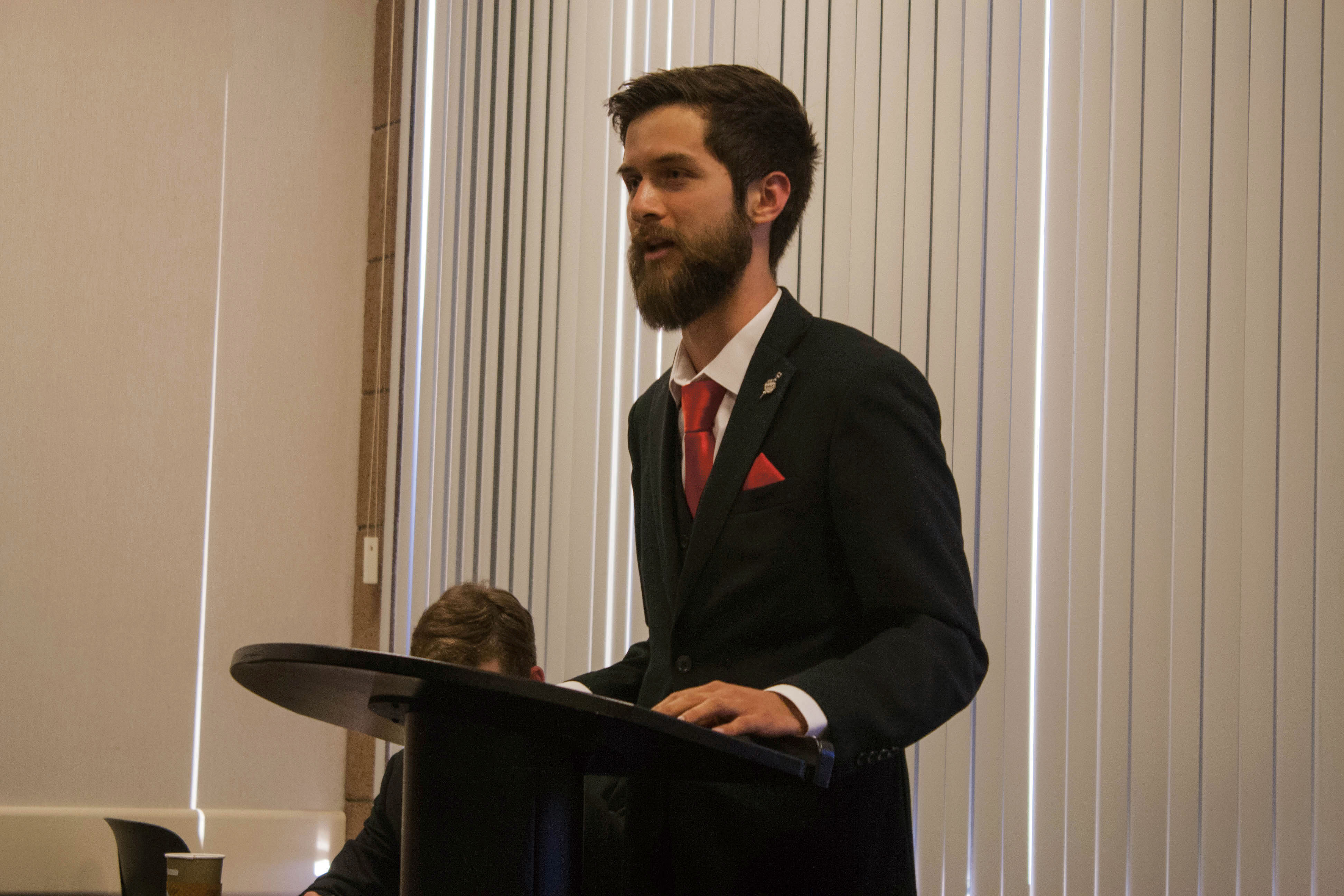
In the heat of the presidential primary season, University of California, Santa Barbara College Republicans and UCSB for Bernie have stood calmly in their respective corners of the debate ring — until now.
In an Oxford Union-style debate on Tues., Feb. 16, two representatives from both campus political organizations donned their proverbial gloves and engaged in their own rhetorical battle for over 50 audience members in the first round of a series of debates expected to be held throughout the primary season.
The debate topics for this round were chosen by UCSB College Republicans and focused on two core platform points of the Bernie Sanders’ Campaign: the proposed federal $15 minimum wage and free (federally-funded) tuition for all public universities.
These heavy topics, with a world of real-life implications for a crowd of hungry, debt-ridden college students, were lightened, thankfully, with a little levity.
“If you’re feeling the burn, try feeling this Bern instead,” third-year religious studies major Eric Villalobos said, as he kicked off the first round and presented his competitors with UCSB for Bernie’s very own custom-made condoms.
The speakers then settled into the business at hand, diving into their allotted seven-minute speech.
For the first topic, the proposed federal $15 minimum wage, both sides laid out a baseline set of facts. The federal minimum wage, when established in 1933 by the National Industry Recovery Act, established a base level wage of 25 cents an hour. When adjusted for inflation, the equivalent minimum wage in 2016 would be only $4.56, significantly less than the current federal minimum wage of $7.20.
It was here where the arguments deviated. Amid the arguments in favor of allowing states to establish minimum wages and protecting small businesses posed by second-year UCSB College Republicans member Andrew Gates, fellow speaker Ron Papile called for a return to pragmatism.
“Perhaps an increase to something like $9 would be beneficial,” Papile, a third-year executive director of the UCSB College Republicans, said, “but that does not guarantee that an increase to $15 would be beneficial as well. It could very well be that $15 falls outside the ideal equilibrium for our economy. This is something that the Bernie campaign desperately needs to consider before it continues to promise something that sounds better than it really is.”
UCSB for Bernie Co-Presidents Eric Villalobos and Guy Singer disagreed, arguing in favor of the proposed federal $15 minimum wage with an argument intended to hit home with many anti-tax conservatives.

“The current $7.20 an hour minimum wage is not by any means a living wage,” Singer said. “It’s because wages are so low that so many individuals are dependent on social services, services that are funded directly by taxpayers. The goal by raising the minimum wage is to make people more independent, more able to put money back into the economy, and then lift the burden off the backs of taxpayers.”
As topics switched, tensions rose, and the debate became more personal. UCSB College Republicans asked those present to shift their perspective, asserting that there are many jobs on the market that are overlooked because they require a tech degree — and are cheaper to obtain and perhaps pay even more than jobs landed by college grads. Papile also discussed the growing probability of a class of super seniors.
“I certainly know I love living in Isla Vista and going to UCSB,” Papile said, “but I have an incentive to leave because it’s expensive. What you’re doing when you’re federally funding tuition is taking that incentive away.”
Singer argued that complete federal subsidies would do no such thing, as the existence of unit and quarter caps would still remain. College degrees would, most importantly to the Bernie side, keep students competitive in an increasingly cutthroat job market.
The thirty minute question and answer session that followed the debate was heated but expectedly so. Most attendees in the crowd did little to appear neutral while wearing their Bernie pins and Reagan-Bush ‘84 t-shirts.
It was second-year political science major Natalie Jordan whose question for the Bernie speakers shook an otherwise unwavering crowd.
“As an out-of-state student from New Jersey, I only had two options — Rutgers or the College of New Jersey,” Jordan said. “I’m only here now because I’m crazy enough, and academically qualified enough, to spend the extra on tuition. How is Bernie’s proposal for federally funded schools going to handle people like me — would I have been deprived of the amazing experience I’ve had at this university just because I didn’t live in the right state?”
Singer claimed that Bernie’s plan would provide for the building of more and better public institutions where necessary.
When asked if her mind had been at all changed, Jordan’s response was light but frank.
“Definitely not,” she said, “I wouldn’t say anyone’s was.”
The crowd swelling out the door shouted back in agreement.










